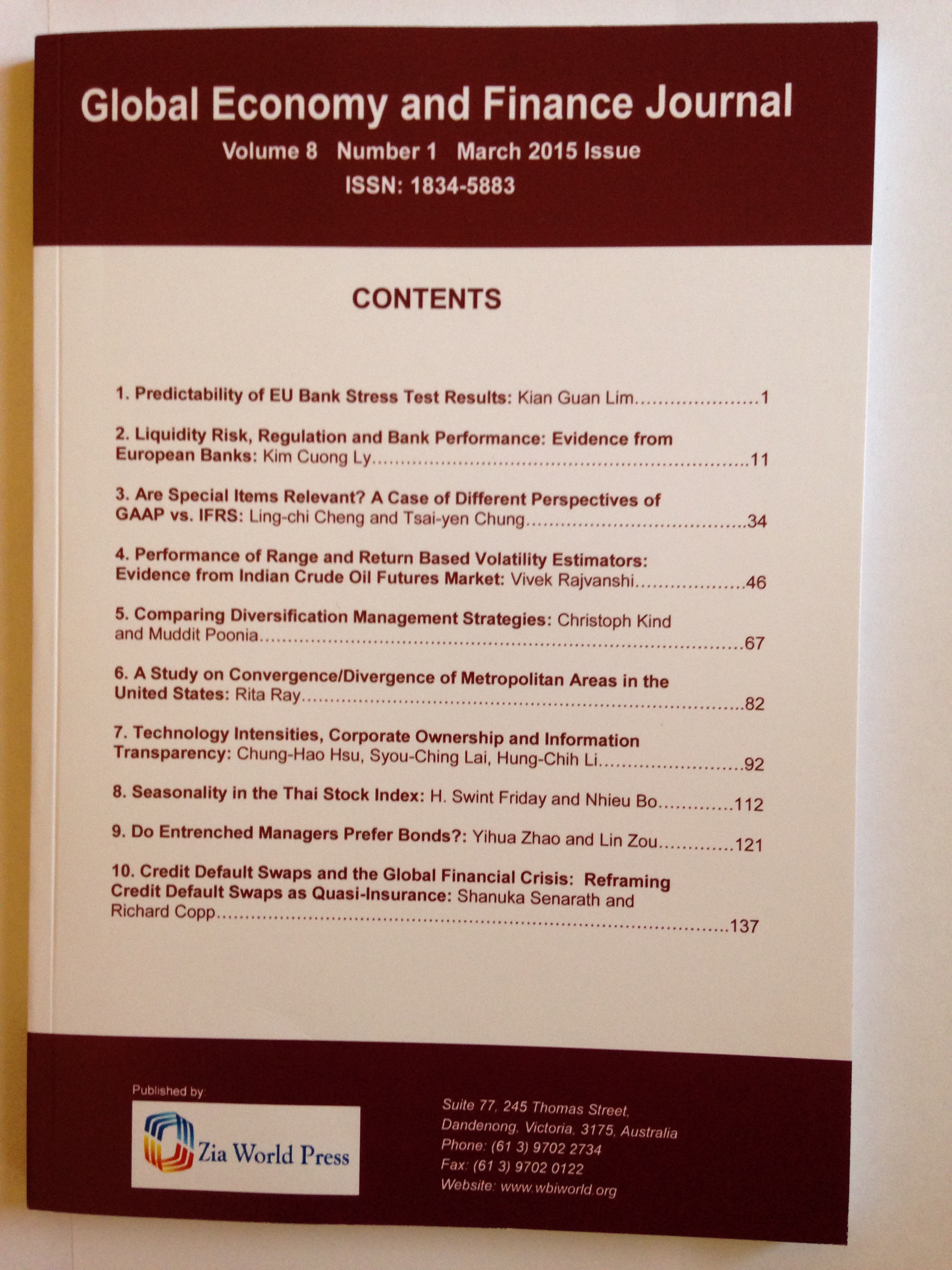Pages
1 – 14
Author: Leonard Arvi and Danny Ervin
This study evaluates the efficacy of the transaction exposure (value-at-risk, or VaR) for a multinational corporation (MNC) conducting business in sixteen specific currencies for the 2011-2016 time period. The approaches include traditional VaR (also called the variance-covariance approach), modified MVaR and conditional CVaR. More specifically, the maximum 1-day holding period loss is computed and compared across the three approaches to provide practical information to assist MNCs in understanding the extent to which each version of value at risk can be beneficial over time. These results also provide MNCs critical information in determining how they should hedge this risk and which currencies to hedge. Events like Brexit and other significant events impact MNCs currency risk. By knowing what is the maximum loss conditional on a specified VaR will immensely help firms manage their currency risk much more precisely.
Pages
15 – 30
Author: Yi-Mien Lin, Chia-Ying Liu and Ya-Shih Wu
Using Taiwanese high-tech industries as a sample, this study examines the effect of financial constraints and financial performance on corporate social responsibility (CSR) performance and the effect of CSR performance on accounting quality. Adopting CSR penalties as a proxy variable of CSR performance, this study finds that low financial leverage or high operating cash flow and return on assets may lead to a company receiving fewer CSR penalties. We also use the provision of a CSR report to measure CSR performance and then investigate how CSR affects accounting quality. The results indicate that companies that publish CSR reports have superior accounting quality than those that do not.
Pages
31 – 41
Author: Muhammad Asraf Abdullah, Jerome Kueh Siew Hui, Audrey Liwan, Rosita Hamdan and Cathrine Chan Bao Hui
This study explores the relationship between governance and human development indicators with happiness using the panel data fixed effect and random effect estimation approach. Findings from the study stress on the importance of good governance in influencing life satisfaction. In a way, good governance stimulates happiness in a positive manner. Governments in developed countries in Asia and Europe may increase happiness and promote equality through enhancements in the quality of governance. This can be done by ensuring good practices in managing the economy and resources of the country. However, the relationship between the economic development level and happiness is inconclusive and insignificant.

